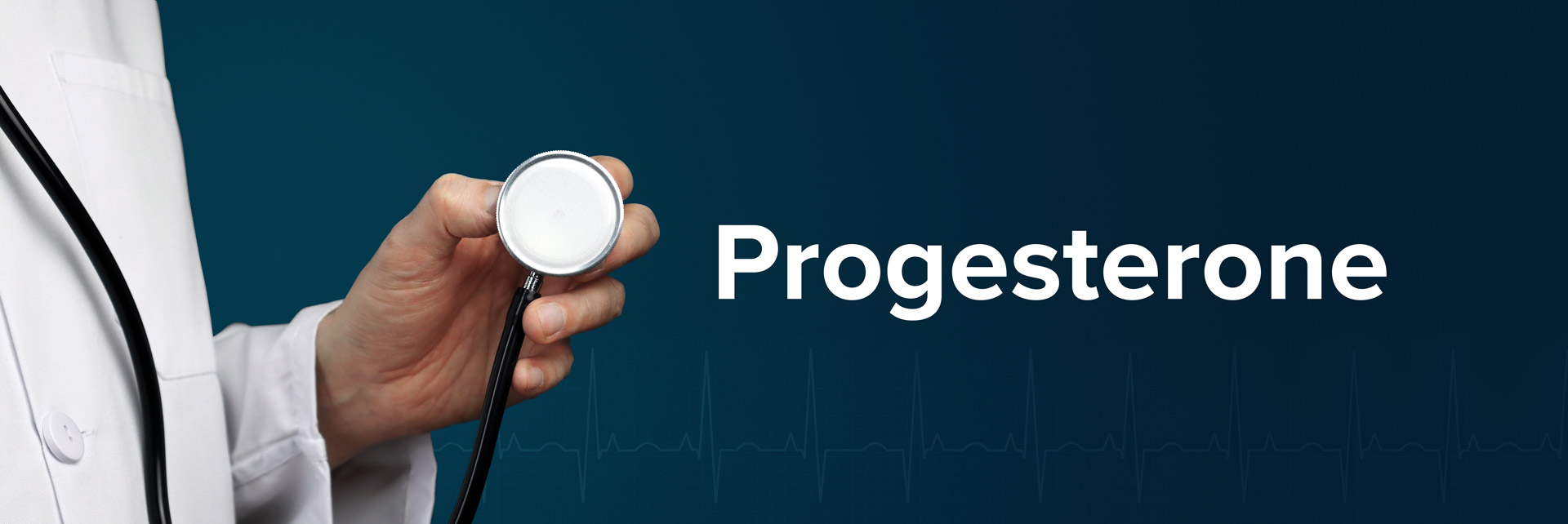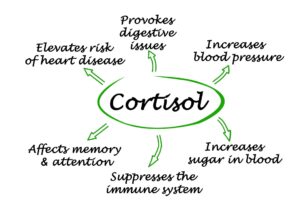
When the topic of male hormones are mentioned, testosterone wins that race hands down. Progesterone in men is very much an after thought. Rightfully, it is thought of as a female hormone alongside estrogen. However, males also have progesterone and estrogen.
The name is derived from the ‘pro’ gestation phase in females aka. pregnancy. Progesterone increases tremendously during pregnancy to some accounts of 600% increasing during term. This shows the inherent protective ability of the hormone as the fetus grows.
Progesterone in men is a protective hormone. A couple key organs are prominent in their requirement for progesterone. The brain is heavily dependent and in healthy males a large concentration is typical. It is the most protective hormone the body produces. The thymus gland, a key organ of our immune system, is also profoundly dependent of progesterone.
Progesterone is considered to be the basic hormone of adaptation and of resistance to stress. The adrenal glands use it to produce their antistress hormones, and when there is enough progesterone, they don’t have to produce the potentially harmful cortisol.
Symptoms of low progesterone in men
Production of too much cortisol some of you may know causes osteoporosis, aging of the skin, brain cell damage, and the accumulation of fat, especially on the back and abdomen. One of it’s main functions is to oppose estrogen. Estrogen in men will cause all sorts of problems, with libido and ‘ability to perform’ high on the list. Progesterone’s role of opposing estrogen cannot be understated.
Even with the higher concentrations in the brain men have systemic progesterone. It vital in it’s role in the endothelial lining of the blood vessels. It tends to keep them nice and smooth. With estrogen, the exact opposite happens. Estrogen will make it ‘lumpy and bumpy’ for lack of a better term, This means, you’re liable to have clotting diseases like strokes and angina. The interesting thing is men who do not have a high amount of progesterone tend to get cardiovascular diseases in their 40s, where as women are protected until after their 50s. The higher progesterone is likely the reason women have less cardiac events than men before menopause. Anecdotally, I’ve heard women who bear larger families tend to live longer and that could be attributed to the higher exposure to progesterone while pregnant.
Usually osteoporosis is deemed a women’s concern. Under the age of 50 women do see more bone loss but by age 65 both sexes are comparable. Men are under screened in this area and I have to wonder if men were screened earlier what the results might say. We all need progesterone for the brain, specifically for the myelin sheaths (fatty tissue protecting the nerve cells)
Trauma in women will also heal quicker than in men because of the progesterone, particularly menstruating women. They do very well because of progesterone protecting them, and it minimizes water retention in the body.
Some of the Functions of Progesterone in men
- relieves anxiety,
- improves memory,
- protects brain cells
- prevents epileptic seizures.
- promotes respiration, and has been used to correct emphysema.
- prevents bulging veins by increasing the tone of blood vessels,
- improves the efficiency of the heart.
- reverses many of the signs of aging in the skin, and
- promotes healthy bone growth.
- it can relieve many types of arthritis,
- helps a variety of autoimmune diseases and the degenerative disease with an autoimmune component
- thyroid hormone secretion
- euphoria has also been reported but an argument can be made that a individual who is physiologically healthy will exhibit that characteristic.
Causes of low progesterone in men
- Excess stress. This can be physiologically or psychologically.
- Lack of sunlight (red light)
- Poor nutrition (low protein intake and low quality fats)
- Serotonin (a latter post on this misunderstood neurotransmitter)
- Melatonin
- Taking progesterone as a supplement depends on the context. A healthy male does not need to supplement.
Progesterone in men
Progesterone will have a sedative effect on the body. Below is a pic from an experiment where Hans Seyle, known as the “Father of Stress” administered a high dose of progesterone. Equivalent dosage of 10,000 mg for a 150 lb. adult. Seyle’s students thought they had killed the rodent but it was just under “profound anesthesia.”
Many people who are in chronic stress and a hyper alert state would long to feel like that rat 🙂 Similar to the rat’s results, there will be a relaxing effect but also potentially a “cold shower” effect on a males libido. This is temporary but not many males actively seek that result unless the problem is larger such as brain trauma or burns of the skin. Both circumstances have seen the benefit of adding progesterone.
Supplementing
The popular choice of progesterone will usually come in liquid ( almost like syrup) and need to be refrigerated. It can be administered orally or topically starting with a few drops orally. Dosing will depending on symptoms. Women who are post hysterectomy usually take in about 30 milligrams/day. A good starting dose for men would be about 5-10 mg. There hasn’t been any negative side effects reported from progesterone unless the dose is extremely large and then you may look like the ‘dish rag’ rat. If applied topically, progesterone will require a larger dose than if taken orally. Some people prefer the topical to avoid unnecessary excipients. Unless, the goal is to heal the skin in some fashion then ingesting seems to reap the most and quickest results.
Unfortunately, no particular food will supply progesterone. The other side of the same coin is that poor nutrition would antagonize progesterone. Poor food choices will undoubtedly cause hormonal issues with regards to estrogen (in both sexes) and testosterone. An optimal functioning thyroid and cholesterol that isn’t too low will support progesterone and pregnenolone which are truly the hormones of youth.
Further reading:




